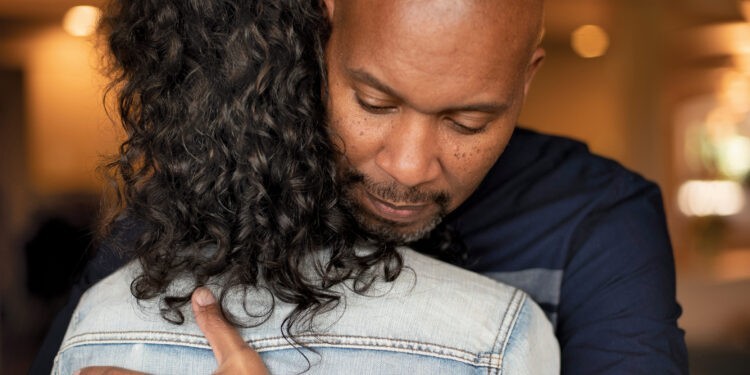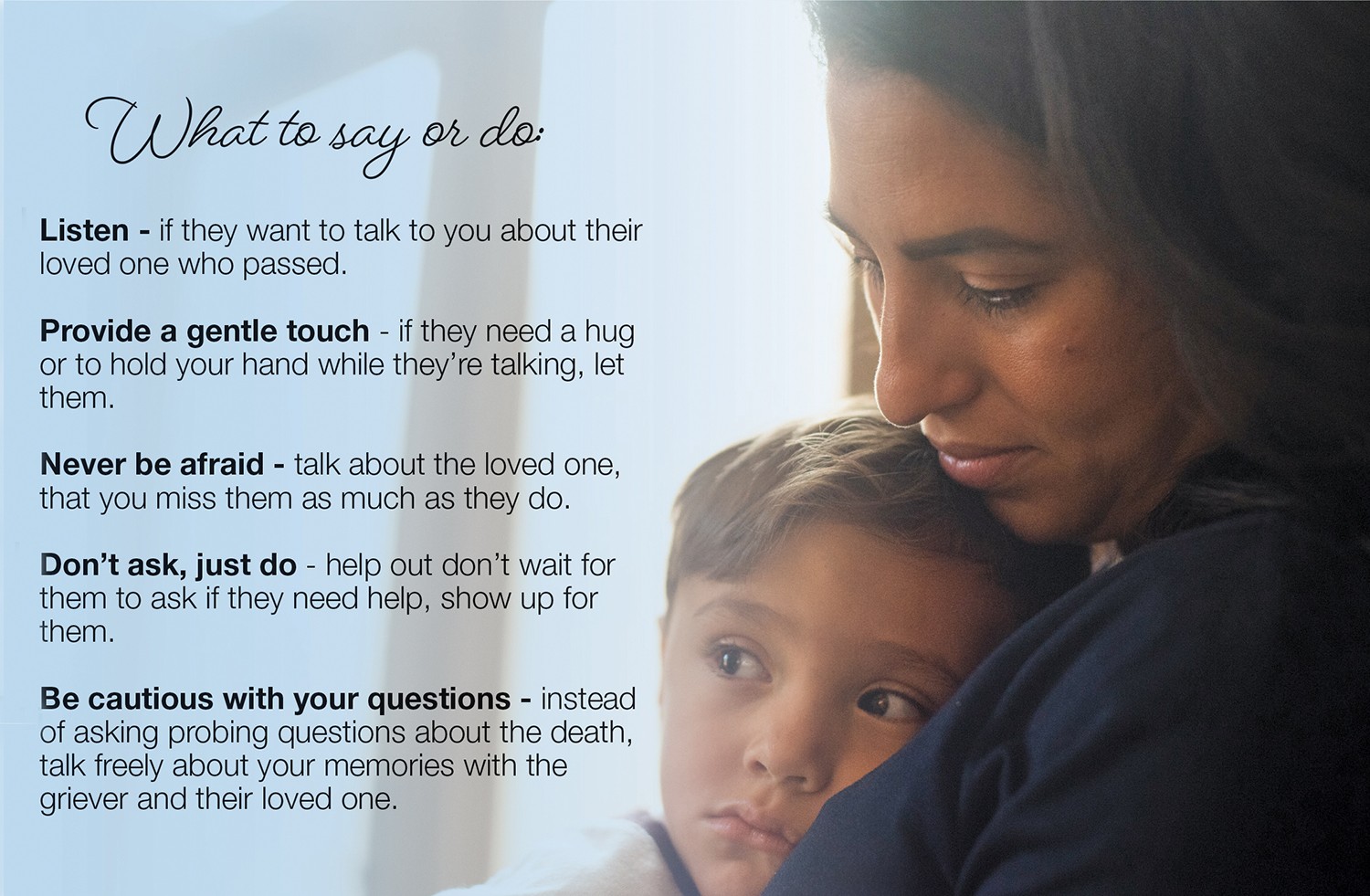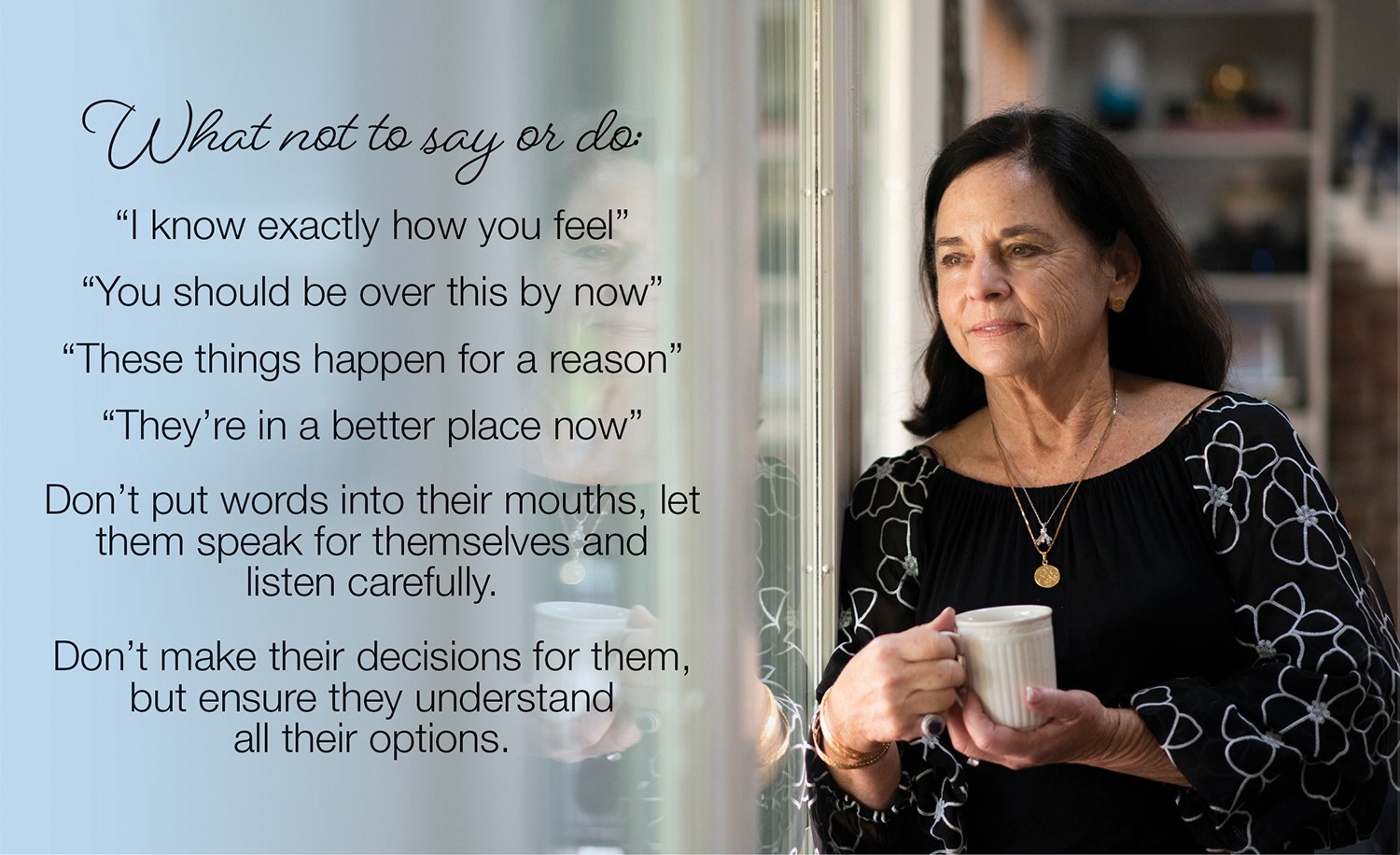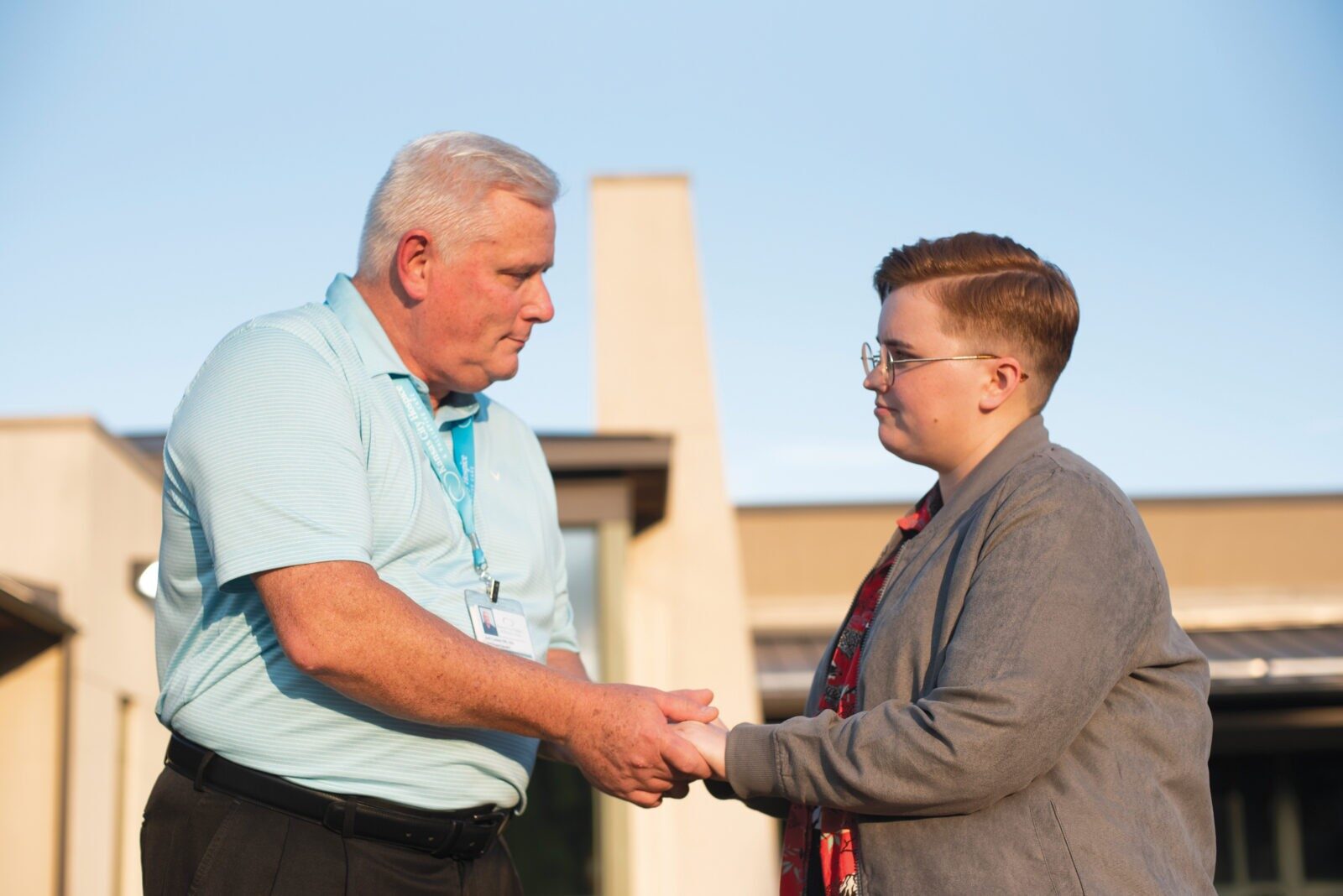SAY SOMETHING! What to Say When There’s a Death in Your Friend Group

Story by Lisa Farmer
Life’s full of uncomfortable moments. One of those is: what do you say when someone you know experiences a death in their family?
It’s Hard for the Person Who Experienced the Loss
Grieving can be hard and grieving is different for everyone. We respect and understand that at Kansas City Hospice & Palliative Care. For a lot of people, it can be difficult to talk openly about their grief; many of them feel it’s too personal or too private. Even though talking about the events that caused their grief is crucial to recovery, people are hesitant in talking about it. Even though some of us haven’t experienced it, we know it’s one of the worst things that can happen to a person. But, it’s during this difficult time that the people most affected by the tragedy — the people most closely affected by the death — have to – need to – know they’re loved and supported.
The pain is immeasurable and people carry this grief with them throughout their lives. But even in these darkest of times, it’s important to remember you’re not alone. Whenever you look for help, you’ll always find communities of people, parents, professionals and others who will be there for you and support you.
If you’re grieving someone, we really encourage you to build a community of support. That could include: Friends, Family, Neighbors, Colleagues, Congregation, Social media, Peer support, Professional support – which as we mentioned before, could include resources from Kansas City Hospice. We offer many resources to the community related to grief support.

Resources for You
It’s for this reason that at Kansas City Hospice & Palliative Care you can find many, many resources on our website at KCHospice.org/grief. Solace House, our center for grief and healing, offers support through our specialized grief support services and programs. In addition, we have camps for grieving kids and families. We encourage everyone to look at the website and reach out to us directly if you see a way we can help you or someone you love.
Supporting the Bereaved
Social support becomes more important than ever during times of grief. So even if you feel uncomfortable at first or are unsure of how to console a bereaved person, it’s important to try to be there for them. Even something as simple as being a good listener can be extremely comforting.
Navigating difficult conversations with bereaved parents or with anyone in your social circle, your synagogue, your kids’ classroom, your church, your Facebook friends, your neighborhood is difficult.

What do you say when someone dies?
An important piece of advice our grief experts often impart when someone from your “tribe” experiences death is – please do not tell them you know just how they feel, even if you’ve walked in similar shoes by losing a loved one. We know folks want to help; we know people mean well. We know people are often at a loss for what to do. We know they want to protect the person to whom the tragedy has happened to spare them from any more sadness. We also know they have a desire to connect with the person or family to whom the tragedy has happened and ultimately want to “fix” things for them.
It’s HARD to Know What to Say
Talking about grief IS HARD. We know that. Everyone knows that, it’s the elephant in the room. It causes personal discomfort. It’s a deeply emotional topic and not everyone is comfortable with their emotions. There’s a real lack of understanding about grief and how it affects people differently. There are certain social norms and sound bites around “what to say” about grief. We think we should say, “I’m sorry for your loss. I’m sending thoughts and prayers” because we see and hear other folks say that. That doesn’t mean we should. We can do better.
We acknowledge it’s hard. There’s a real fear of saying the WRONG thing to a person who’s grieving. When really saying NOTHING – and the grieving person saying NOTHING is the WRONG thing.
And finally, there are cultural and religious factors influencing all off this. What does their spiritual practice dictate should happen – and am I in conflict with that? It’s a lot to contemplate and worry about,
but it’s still not a reason not to say anything.
So they don’t know how to say what they want to say, and that morphs into being at a loss for what to say. Sometimes, people just are not sure how to react to a loss. Even when or if you know someone is going to die, it doesn’t mean you know how you’re going to react when they do. Every death is different. It’s sacred and your reaction is very likely to be different, based on how long you’ve known the person.
Some people, when faced with a loss, have a tendency to minimize the loss, such as, “it was just your friend/brother/teacher.” That’s something we should NEVER do as you NEVER know or understand someone’s personal dynamic with another person.
Another tendency is to compare your own personal loss. That’s easy to do when you’ve lost loved ones of your own but we always have to remember, each person’s grief is SO DIFFERENT. It’s terrific to empathize, but how they are experiencing this death is their own experience. Many people avoid the situation altogether which creates other challenges. We encourage you to lean in and offer support.

How to be A Supportive Friend, Neighbor or Loved One
Avoid being judgmental about how a griever might be reacting. Their grief is their own, so comparing their losses or challenges to yours could be risky. Let them make decisions. You can ensure they have all the options, but they may need time to themselves to process. Don’t hover over them. Don’t be stirred by someone else’s behavior. Just be there calmly for the griever. Outside of cultural diversity, every person, every family has different beliefs. They may match yours, or they may be vastly different, but they are theirs and right for them.
Helping Kansas Citians Manage Their Grief for 25 Years
Solace House, Kansas City Hospice’s center for grief and healing just kicked off its Seasons of Solace campaign and we invite readers to join us in celebrating 25 years of empowering the Kansas City community through our specialized grief support services. During the past quarter-century, Solace House has served as a pillar of strength and compassion, offering a safe haven for individuals coping with loss.
Thanks to community support, we’ve witnessed firsthand the transformative power of grief support, as countless people have found healing, hope, and renewed purpose after experiencing sudden and often tragic loss.
In honor of our 25th anniversary, we’re asking for gifts of just $25 or more. Your generosity will help us extend our reach and amplify the positive impact we’ve had during the past 25 years. It will help us continue to provide the vital support grieving individuals and families in our community desperately need.
To learn more and donate to the Seasons of Solace campaign please visit KCHospice.org/seasons






